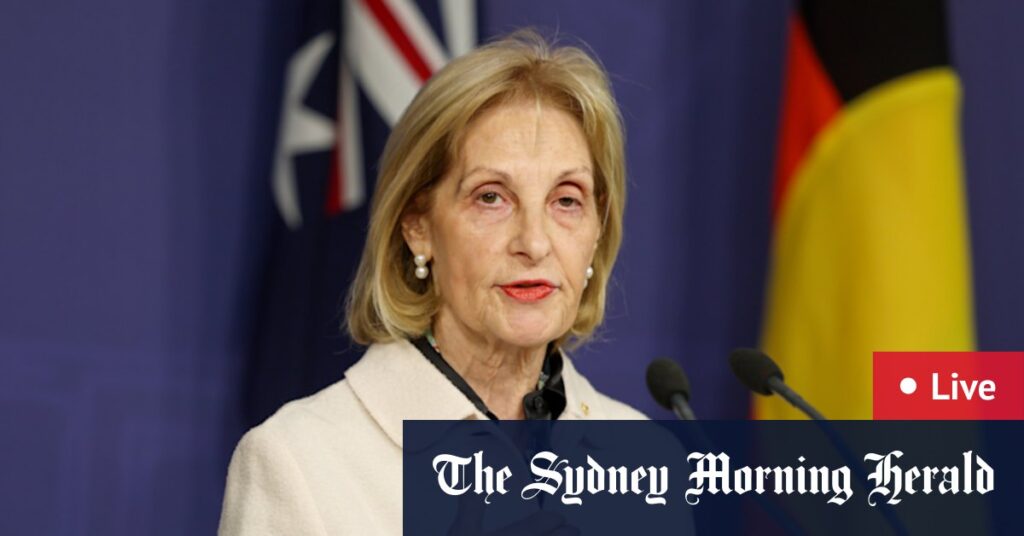The special envoy to combatting antisemitism, Jillian Segal, has given a number of interviews this morning following the release of her report on Thursday.
The report has been welcomed by Jewish groups, but contentious proposals including a call to strip funding from universities, charities and cultural institutions that fail to combat hatred against Jewish people and calls for editorial standards within the media have raised criticism.
Segal told Nine’s Today show that Jewish Australians had been “inundated with hate from all sides”, and she criticised “sensational media about cancelling funding”.
Special Envoy to Combat Antisemitism Jillian SegalCredit: Dylan Coker
“It’s mostly a constructive plan to do things, to educate people, to tell them about antisemitism and to bring people together,” she said.
On the ABC’s Radio National, she was asked about criticism of the document that argues it would silence dissent.
“That’s not true,” she said. The document is a whole-of-society document that focuses on educating people about what antisemitism is.
The report also says it would work with the federal and state governments to force all public institutions to adopt the International Holocaust Remembrance Alliance’s (IHRA) working definition of antisemitism.
Asked on Nine about the difference between criticising the state of Israel and antisemitism, she pointed to that definition, saying: “It clearly says that you can criticise Israel, the policies of Israel, like any other critical criticisms you make of another country. That is fine. But when you call for the destruction of the State of Israel and the elimination of all Jews, that falls over the line and is antisemitic”.
However, the author of that definition, Kenneth Stern, director of the Centre for the Study of Hate at Bard College, has repeatedly criticised its wider use, saying it was adopted primarily so that European data collectors could know what to include in definitions.
He has been critical of its wider adoption in places such as universities, as the special envoy’s report recommends, because of fears it impinges on criticism of Israel. Asked about that criticism on ABC Radio National, Segal said the definition had been endorsed by the Australian government, and said Stern had been “left behind”.
“It is a misunderstanding of the definition,” she said. “The definition, in its own terms, clearly says, If Israel is criticised like any other country, that’s absolutely fine. And indeed, you know, so many Israelis are criticising the policies of their own government.”
Read the full article here
